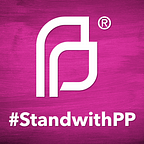Supporting the Indian Child Welfare Act is a Step in the Long Battle for Bodily Autonomy and the Indigenous People’s Movement
By: Colin Benedict, Digital Organizing Manager, Planned Parenthood of Greater New York
As the Supreme Court keeps pushing its conservative agenda against marginalized communities, it comes as no surprise that Indigenous People’s sovereignty and dignity are one of their main targets.
On February 28th the Supreme Court announced the constitutionality of the Indian Child Welfare Act (ICWA) will be challenged and argued before the court this fall. Enacted in 1978, ICWA provides basic protections for Indigenous children from forceful removal from their families and communities through the adoption system. It established a tiered system that allows American Indian children to have prioritized adoption status first with their extended family, then by members of their Tribal Nation, followed by members of other Tribal Nations. If there are no guardians available after moving through these tiers, only then would the children be eligible for adoption by non-Native guardians.
Brackeen v. Haaland is a case out of Texas that claims ICWA is unconstitutional because it implements a system that mandates racial and ethnic preferences in violation of the Fifth Amendment’s Equal Protection Clause. This argument presses reverse discrimination, when what ICWA does is provide protections against assimilatory practices enacted by the United States that have been used to further the collective genocide of Indigenous people on Turtle Island. ICWA was established to amend the long history of colonial violence perpetuated by the forced removal of Indigenous children from their communities. To comprehend the scope of what repealing ICWA would mean for Indigenous communities we must first grapple with the horrific history of residential schools and why the ICWA was needed in the first place.
During the 19th and 20th centuries forced assimilation of Indigenous children into Western society was done by placing children in boarding schools outside the reservation where child abuse, pedophilia, and starvation were rampant. This forced removal of Indigenous children from their communities was just another tactic to continue the legacy of cultural erasure of Indigenous people in the U.S. and Canada. At least 500 graves of Indigenous children have been found on residential school sites and experts estimate that the total number of graves could be as high as 40,000 as investigations are ongoing.
Even after the closure of most residential schools, Indigenous children were still removed from their communities at higher rates than other racial demographics. ICWA provides protections that prevent those assimilatory practices of colonial violence from continuing. It also upholds tribal sovereignty and autonomy by establishing that tribal governments have sole jurisdiction over their members who reside on reservation territory. To strike down ICWA would be to remove one of the few protections Indigenous Nations have against renewing this cycle of colonial violence.
Nations across the U.S. and Canada have lobbied for increased resources and funds to explore the full impact of the Residential School System and national campaigns continue to raise awareness about the missing members of Indigenous communities. Recently, Planned Parenthood Federation of America took a promising step towards active allyship with Indigenous communities. PPFA signed onto an Amicus Brief filed by the National Indigenous Women’s Resource Center in the Brackeen v. Haaland case in support of ICWA and tribal sovereignty. Through the teachings of reproductive justice, we know bodily autonomy extends beyond health care and when and whether to have children. It must include safety and support for families from state-sanctioned discrimination and violence. Reproductive justice requires Planned Parenthood, and the reproductive rights movement as a whole, to step up their support of Indigenous children and communities, while also reckoning with its own history of harm which caused irreparable damage to the health and lives of Indigenous people.
The Indian Child Welfare Act is widely supported by an impressive array of Indigenous stakeholders and allies. At the lower court, 486 Tribal Nations, 59 Native organizations, 31 child welfare organizations, 26 states + DC, and 77 members of Congress offered support for ICWA. The potential overturn of ICWA reflects a long history of state-sanctioned attacks on Tribal Sovereignty — But we will not go back. We will not allow any more children to be robbed of their traditions, heritage, and families. We will come for every single protection and treaty right that is afforded to us as sovereign nations and peoples. Not as Americans or Canadians, but as Indigenous Nations.
Be a part of the movement to defend ICWA — we need you to support the National Indian Child Welfare Association! Learn more and take action here.
About the author: Colin Benedict is a member of the Mohawk Nation from the Akwesasne Mohawk Territory. He is the Digital Organizing Manager for PPGNY and is currently pursuing a Bachelor of Arts in Mohawk Language at Six Nations Polytechnic in Ohsweken.
